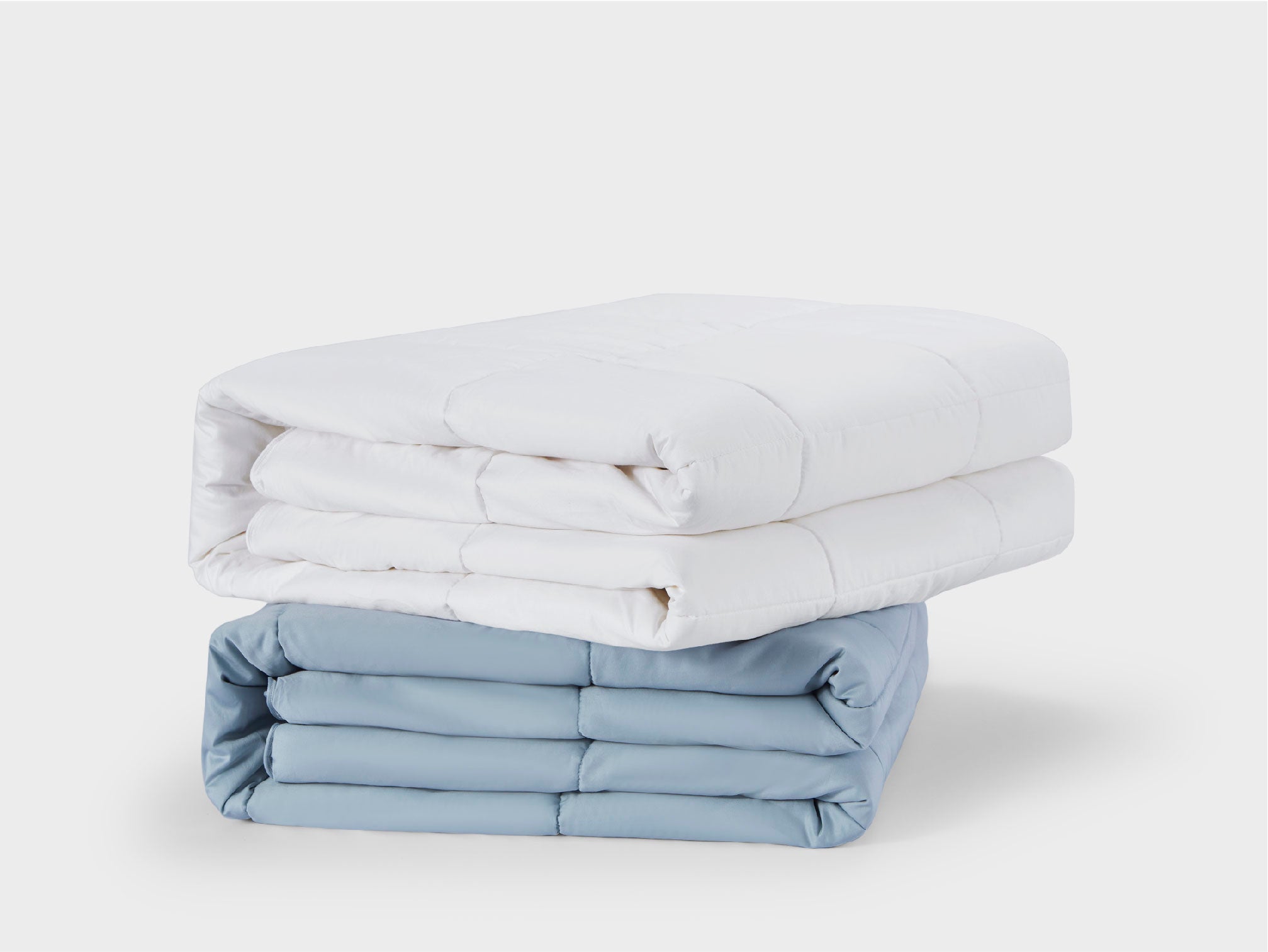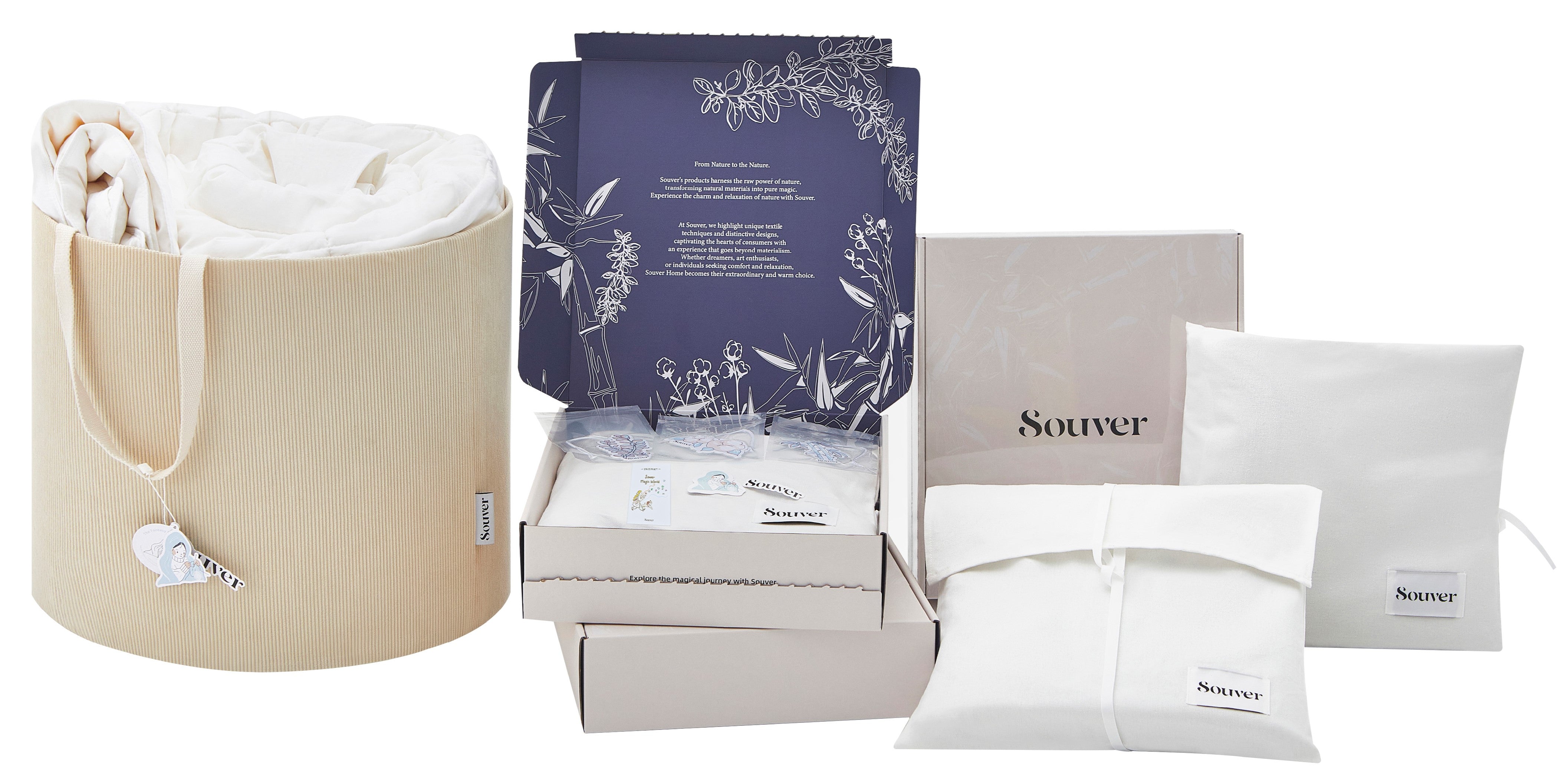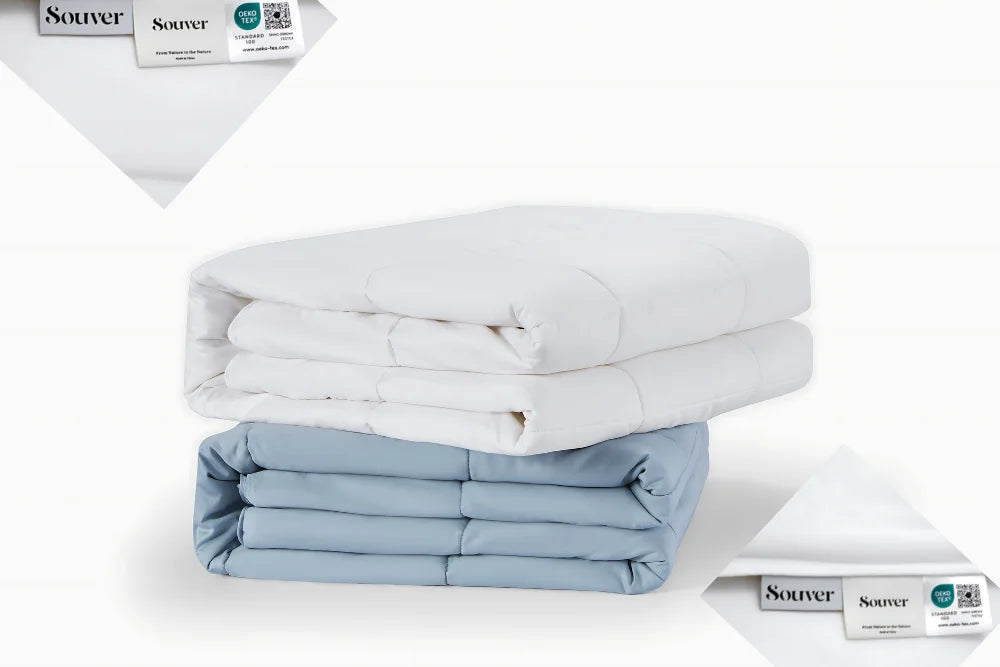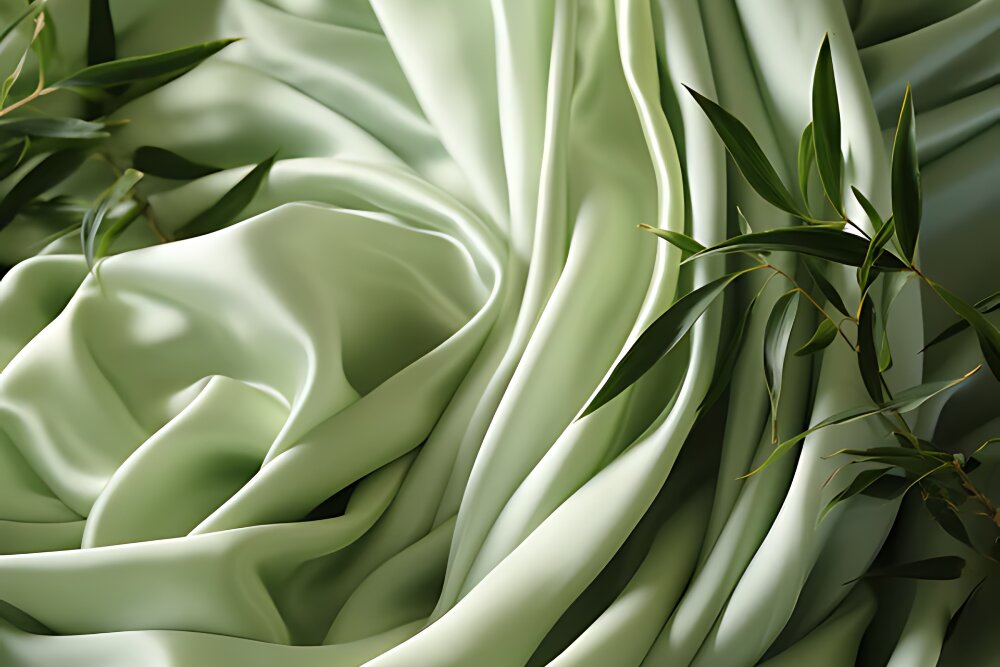Microfiber or cotton fitted sheet? This is the choice faced by many people who are looking for the perfect sleep experience. Microfiber sheets are made from synthetic fibers that are lightweight, soft, and durable. This material is well-insulated, wrinkle-resistant, and quick-drying. In addition, microfiber sheets are usually more affordable.
Known for the comfort and breathability of their natural fibers, cotton sheets are skin-friendly and especially suitable for those with sensitive skin. Cotton sheets are warm in the winter and cool in the summer, making them ideal for all seasons. While cotton sheets may be slightly more expensive, their durability and natural properties make the investment worthwhile.
Whether you value the natural comfort and eco-friendly properties of sheets or prefer an easy-to-maintain, cost-effective option, each material has its unique properties that can be adapted to meet the needs of different people.
Understanding Bed Sheets
Good bed sheets help create a comfortable and cozy sleeping environment. Choosing the right sheets can greatly affect an individual's quality of sleep and overall health.
What Makes Bed Sheets Important?
Comfort and Sleep Quality: The texture and material of the bed sheets directly influence the comfort level while sleeping. Soft, breathable fabrics contribute to a more restful night's sleep, promoting relaxation and reducing discomfort.
Health and Hygiene: Clean and high-quality bed sheets are essential for maintaining good hygiene. They help in preventing the accumulation of dust mites, allergens, and bacteria, which can otherwise lead to skin irritations or allergies.
Key Terms Explained
Thread Count: This refers to the number of threads woven into one square inch of fabric. A higher thread count often indicates a softer and more luxurious feel, but it's important to consider other factors, such as the type of material used.
Weave Types: Different weave types, such as percale or sateen, can affect the overall feel and durability of the bed sheets. Percale is known for its crisp and cool texture, while sateen offers a smoother and silkier finish.
Microfiber Bed Sheets: Explained
Microfiber sheets are a popular choice for many people looking for comfort and practicality. Understanding the composition and properties of microfiber will help you make your choice.
What is Microfiber?
How It's Made: Microfiber is crafted from exceptionally fine synthetic fibers, typically made from polyester or a blend of polyester and nylon. These fibers are intricately woven together to form a tightly knit fabric, resulting in a smooth and soft texture.
Key Features: Ultra-fine fibers give microfiber bed sheets their distinct properties, including exceptional softness, lightweight feel, and wrinkle resistance. Additionally, microfiber sheets are known for their moisture-wicking capabilities, allowing for quick evaporation of perspiration during sleep.
Pros and Cons of Microfiber Bed Sheets
Benefits: Durability and Ease of Care: Microfiber bed sheets are highly durable and resistant to pilling, ensuring that they maintain their smooth texture over time. They are also remarkably easy to care for, requiring minimal maintenance and often retaining their vibrant colors even after multiple washes.
Drawbacks: Less Breathability: While microfiber sheets excel in terms of softness and durability, they may be less breathable compared to natural fabrics like cotton. This reduced breathability can lead to potential heat retention, especially for individuals who naturally sleep hot.
Cotton Bed Sheets
Known for its natural comfort and breathability, cotton sheets are a timeless choice. Let's take a look at the properties and considerations associated with cotton.
What is Cotton?
How It's Made: Cotton is derived from the fibers of the cotton plant, which are harvested and processed to create yarn or fabric. The process involves ginning, spinning, and weaving the fibers into soft, breathable material suitable for bed sheet production.
Key Features: The inherent properties of cotton contribute to its appeal as a bedding material. It is known for its softness, hypoallergenic nature, and excellent moisture absorption, making it ideal for various climates and sleep preferences.
Pros and Cons of Cotton Bed Sheets
Benefits: Breathability and Comfort: One of the primary advantages of cotton bed sheets is their exceptional breathability. The natural fibers allow air to circulate, regulating body temperature and preventing overheating during sleep. Additionally, cotton offers a luxurious feel against the skin, promoting a comfortable and restful night's sleep.
Drawbacks: Maintenance and Cost: While cotton bed sheets offer numerous benefits, they may require more maintenance compared to microfiber sheets. They are prone to wrinkling and may need ironing to maintain a smooth appearance. Additionally, high-quality cotton bed sheets can be relatively expensive upfront, although their longevity often justifies the initial investment.
In addition to microfiber sheets and cotton sheets, our website has more material sheets and a guide to comparing all types of sheet materials, so if you're interested, you can click on them.
Making the Right Choice for You
When deciding between microfiber and cotton bed sheets, it's essential to consider your specific needs and preferences. Several factors, including climate, skin sensitivities, budget, and longevity, can influence your decision.
Consider Your Needs
Climate and Temperature
The climate in your area is a factor that must be considered. In hotter environments, breathability is key to ensuring a comfortable night's sleep. Cotton sheets promote air circulation, which is perfect for hot climates. On the other hand, microfiber sheets may retain heat to a certain extent, which can be uncomfortable for those who are sensitive to warmth.
Skin Sensitivities
Individuals with sensitive skin or allergies should carefully consider the impact of different materials on their comfort and well-being. Cotton's natural hypoallergenic properties make it a favorable option for those prone to skin irritations or allergies. Its gentle touch and moisture-wicking abilities can contribute to a soothing and irritation-free sleeping experience. Conversely, microfiber sheets may pose challenges for individuals with skin sensitivities due to their synthetic composition.
Budget and Longevity
Initial Cost vs. Long-Term Value
When evaluating bed sheet options, it's important to weigh the initial cost against long-term value. While cotton bed sheets often come with a higher upfront price tag, their durability and longevity make them a worthwhile investment. High-quality cotton sheets can withstand frequent washing and maintain their softness over time, offering lasting comfort and value. On the other hand, microfiber sheets may be more budget-friendly initially but could require more frequent replacement due to potential wear and tear.
Care and Replacement
Cotton sheets may demand more care in terms of ironing to preserve their smooth appearance after laundering. However, their durability reduces the frequency of replacement compared to microfiber sheets. Microfiber sheets are relatively low-maintenance and resistant to wrinkles but may need replacement sooner due to the potential loss of softness over time.
Tip: When selecting bed sheets based on budget considerations, remember that while cotton may have a higher initial cost, its longevity often results in greater value over time.
Final Thoughts
Summary of Key Points
After exploring the characteristics and considerations associated with microfiber and cotton bed sheets, it becomes evident that each material offers distinct advantages and drawbacks. Microfiber bed sheets are known for their durability, ease of care, and affordability, while cotton bed sheets excel in breathability, comfort, and long-term value.
Choose microfiber sheets or cotton sheets. Climate, skin sensitivity, budget, and maintenance requirements are all factors you need to consider.
Encouragement to Choose What's Best for You
Whether you choose the softness and low maintenance of microfiber or the breathability and timeless appeal of cotton sheets. Embrace your unique preferences and prioritize the qualities that contribute to a comfortable night's sleep.
Tip: Prioritize your comfort by selecting bed sheets that align with your climate preferences and maintenance capabilities. Ultimately, the best choice is one that promotes restful sleep while accommodating your lifestyle.
In short, whether it's modern, practical microfiber, or classic, comfortable cotton, make sure you sleep comfortably and refreshed every night. We wish you a pleasant night's sleep!










Dejar un comentario
Este sitio está protegido por hCaptcha y se aplican la Política de privacidad de hCaptcha y los Términos del servicio.